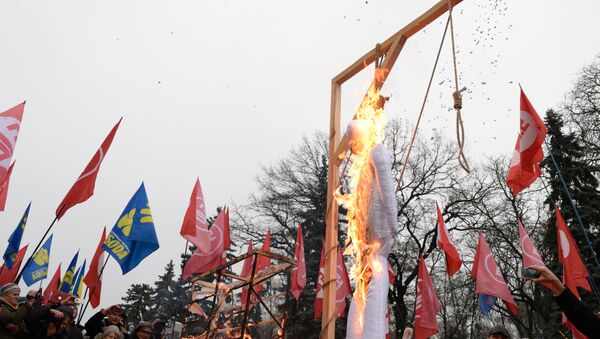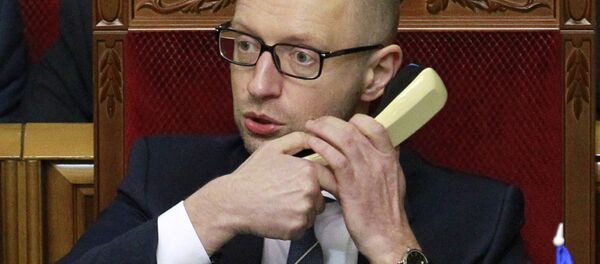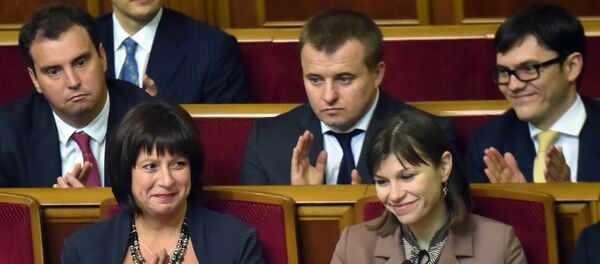“The war in eastern Ukraine, a major economic contraction and painful austerity measures have led many in the public and in the government to become dissatisfied with Kiev. The slow pace and ineffectiveness of reforms have instigated periodic protests and have diminished the government's popularity,” reads the agency’s analysis of the current situation in Ukraine.
Consequently, it states, smaller parties in the ruling pro-Western coalition have begun to distance themselves from the embattled prime minister.
Now the Self Reliance and Fatherland parties, which are also part of the coalition with 52 seats (33 and 19 correspondingly) have indicated that they might follow the Radical Party, bringing the seats down to 214, which is far from majority in 450-seat parliament.
The pro-Western parliamentary majority is therefore at risk.
Besides, in October 2015, Yatsenyuk's People's Front did not even participate in local elections because polls indicated that the party had less than 5 percent of the vote — a dramatic decline since its performance in parliamentary elections a year earlier.
Sensing the apparent need for change, the agency’s analysis calls for a need to change. Mostly in the cabinet reshuffle.
However the agency favors keeping Yatsenyuk as the Prime Minister, since in team with Poroshenko the two are "bulwarks against Russian influence in the country".
Besides, Yatsenyuk’s resignation “could trigger early elections and would require precious financial and political resources at an already sensitive and difficult time”.
So, the agency forecasts that the “amount of political infighting that ultimately occurs will have domestic consequences, of course, but it will also influence Ukraine's relationship and negotiations with Russia.”
The politics in Kiev will increasingly shape the conflict between Russia and the West throughout 2016, it therefore states.




